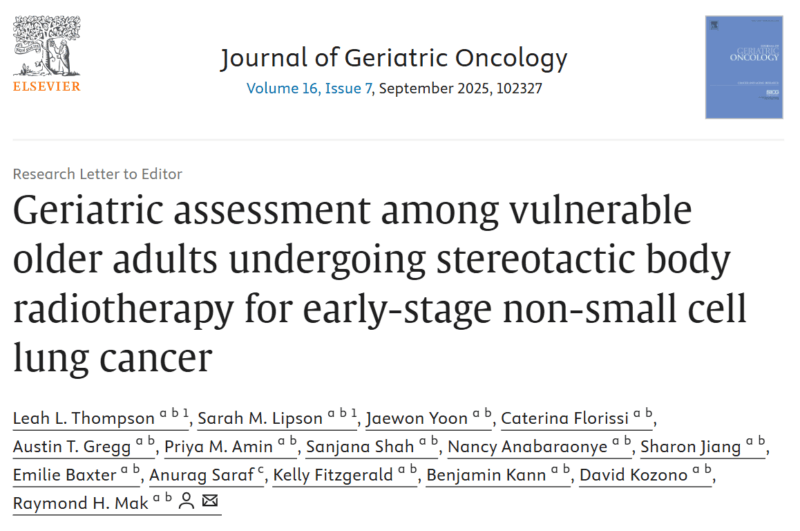Raymond Mak (Ray Mak), Director of Clinical Innovation at the Department of Radiation Oncology at Brigham and Women’s Hospital and Dana-Farber Cancer Institute, and Associate Professor of Radiation Oncology at Harvard Medical School, shared a post on LinkedIn about a paper he co-authored with colleagues published in the Journal of Geriatric Oncology:
“Bridging the Frailty Gap in Modern Medicine
Since we published our Face Age paper in Lancet Digital Health, many have asked: how would you actually use this technology in medicine? Here’s one example of a major gap in care.
A new study in the Journal of Geriatric Oncology led by Dr. Leah Thompson highlights a critical problem: even among highly vulnerable older adults with lung cancer treated with SBRT, only 1% received a Comprehensive Geriatric Assessment (CGA), which is the gold standard for evaluating frailty and vulnerability.
Despite clear evidence that CGA improves care planning and outcomes, its use remains uncommon in radiation oncology, and similar gaps exist across oncology, surgery, cardiology, and primary care.
Why does this matter?
CGA requires specialized expertise, time, and coordination, but resources are stretched thin with nationwide shortages of geriatricians.
Yet older adults represent the fastest-growing segment of patients across nearly every specialty.
This mismatch underscores why AI-based frailty assessment and biological age estimation tools, like Face Age and other digital biomarkers, can make a real impact by:
- Rapid, scalable screening for vulnerability that doesn’t require 90 min with a geriatrician.
- Objective, reproducible data that complements (not replaces) clinical judgment.
- Potential for integration into EHRs, helping teams identify high-risk patients early and direct them to targeted interventions.
CGA will always remain the gold standard. But if only 1 in 100 patients receives it, the real challenge is how to extend frailty assessment to the other 99.
AI-driven tools can help fill this gap by supporting clinicians, improving equity, and ensuring that age-appropriate care isn’t the exception but the rule.
The path forward: combining human expertise in geriatrics with scalable AI tools, so that frailty and aging science inform daily medical decisions.”
Title: Geriatric assessment among vulnerable older adults undergoing stereotactic body radiotherapy for early-stage non-small cell lung cancer
Authors: Leah L. Thompson, Sarah M. Lipson, Jaewon Yoon, Caterina Florissi, Austin T. Gregg, Priya M. Amin, Sanjana Shah, Nancy Anabaraonye, Sharon Jiang, Emilie Baxter, Anurag Saraf, Kelly Fitzgerald, Benjamin Kann, David Kozono, Raymond H. Mak
You can read the Full Article in the Journal of Geriatric Oncology.

More posts featuring Ray Mak.


